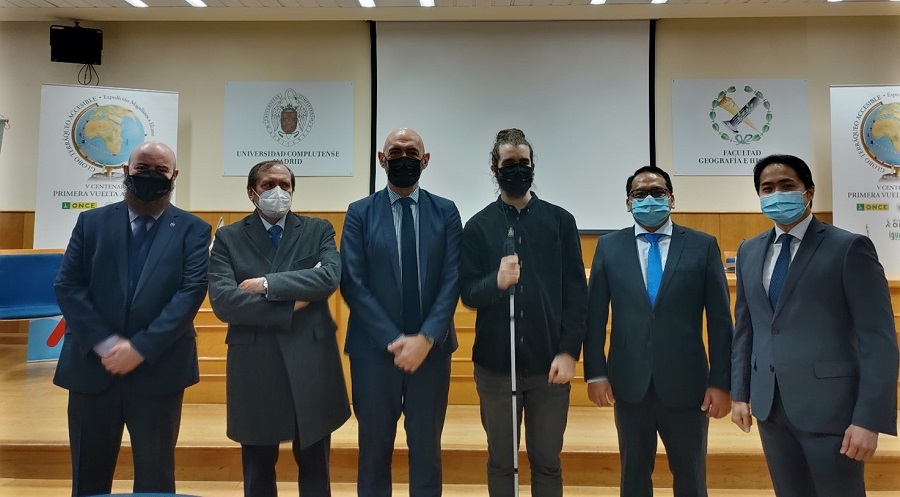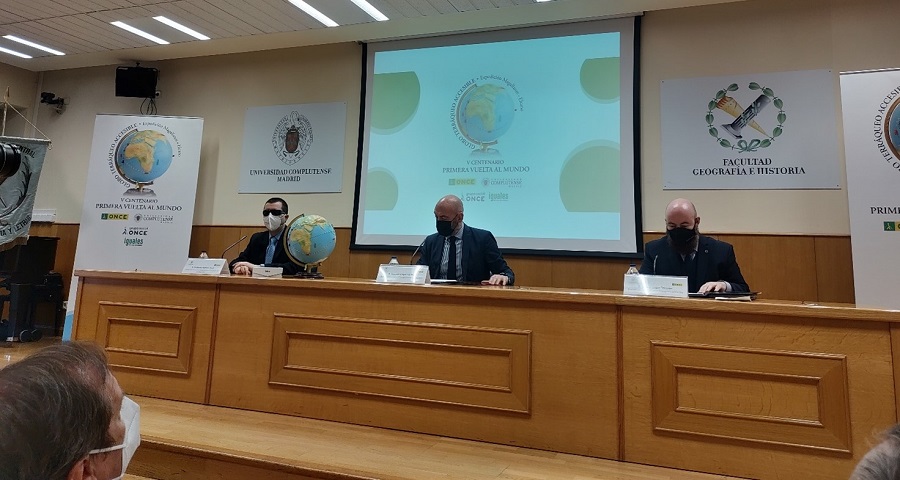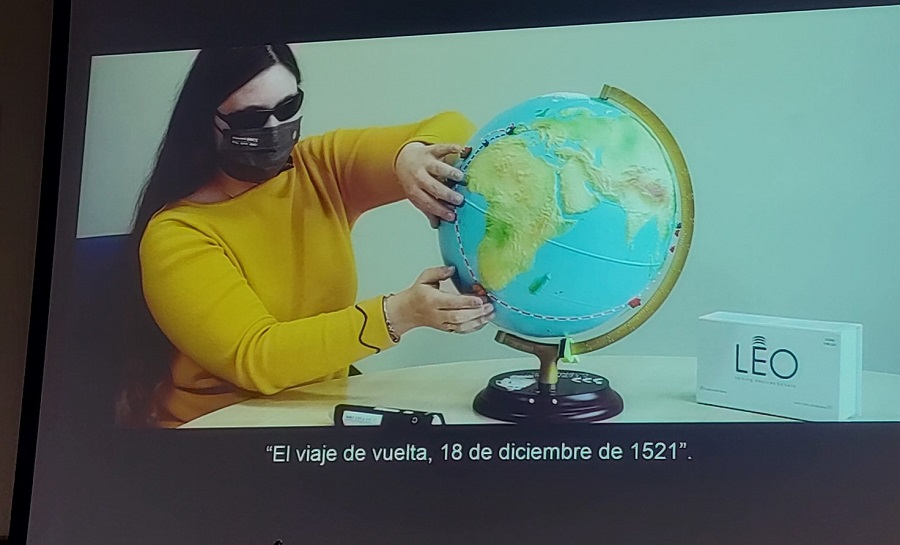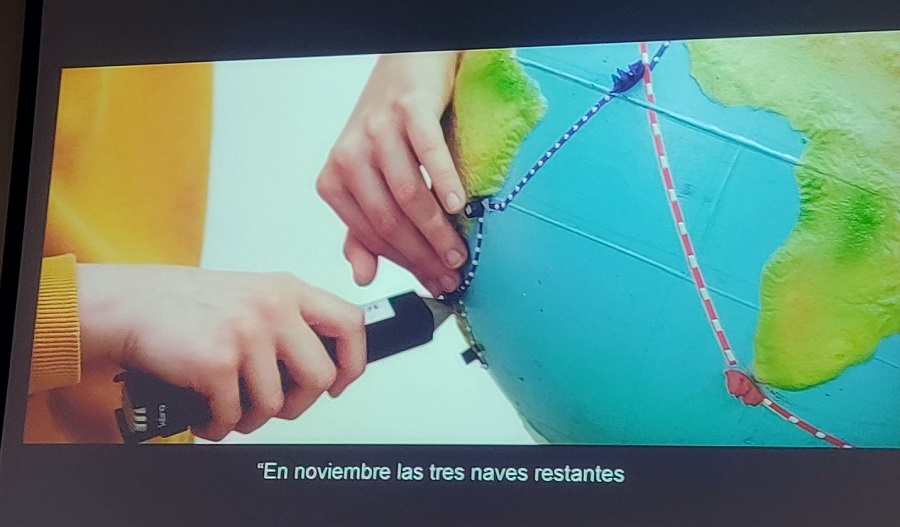
In relation to the ongoing celebration of the 500th anniversary of the circumnavigation of the world, the Philippine Embassy attended a public presentation of the Accessible Earth Globe featuring the Magellan-Elcano route (Globo Terráqueo Accesible Ruta de Magallanes-Elcano), hosted at the Complutense University of Madrid (UCM).
The globes are reportedly the first of their kind, specifically designed to be accessible for people with visual diversity/disability. Designed by the National Organization of Blind Spanish (Organización Nacional de Ciegos Españoles / ONCE), the globes combine tactile, technological and auditory features to present the Magellan-Elcano voyage, the first to fully circumnavigate the earth.
Blind and visually-impaired students, who previously had to rely on flat Braille maps, are now able to take advantage of a fully-textured globe that gives visually-impaired users information on the Earth’s landmasses and the specific route taken by the ships during the expedition. Furthermore, the globes incorporate an RFID tag system that allows users to scan specific nodes on the route with a special pointer and hear spoken recordings with more detail on each point of interest.

The globes were presented at a public ceremony led by UCM Rector Joaquin Goyache Goñi, and with the participation of ONCE Innovation Director Guillermo Hermida Simil and the UCM Dean of Geography and History, Prof. Miguel Luque Talavan. The Philippine Embassy was represented at the event by Consul Mikhal de Dios and Consul Eric Valenzuela.
In his speech, Rector Goyache highlighted the achievement the accessible globes represented, not just as a tool for visually-diverse users, but also how it fit within the context of the quincentennial anniversary of the first circumnavigation of the world. The Rector noted that this resource could be used in the upcoming Philippine Studies Program being developed by UCM and the Philippine Embassy, and he expressed his gratitude to Ambassador Philippe Lhuillier for the Embassy’s close collaboration with UCM in this regard.

Dean Luque, in his intervention, remarked on how the circumnavigation constituted a momentous scientific and human achievement, linking the globe for the very first time. The dean, himself a noted scholar on Philippine history, also mentioned the significance of the voyage in the context of Philippine-Spain relations, remarking that this journey marked the very first point of contact between our two peoples.

